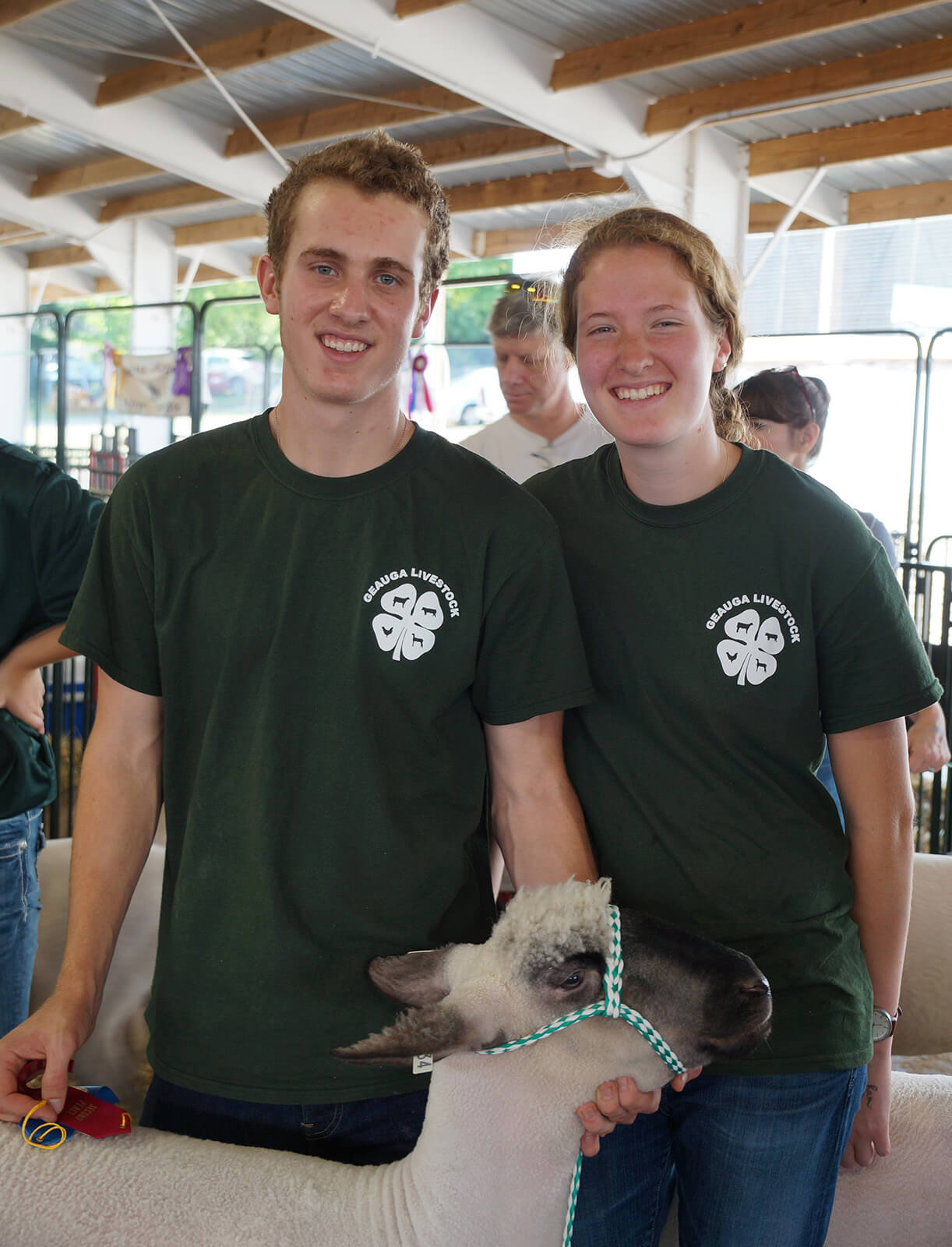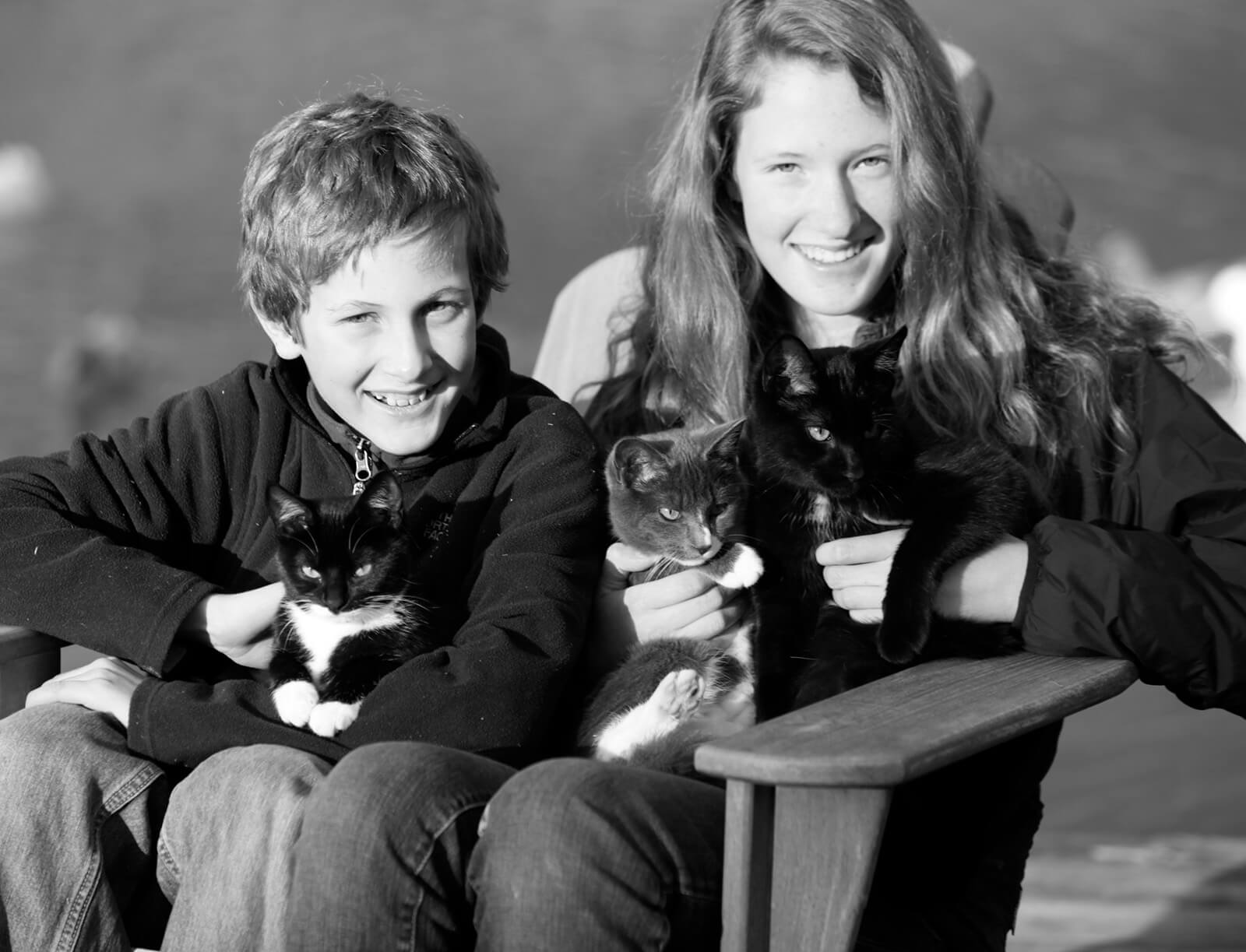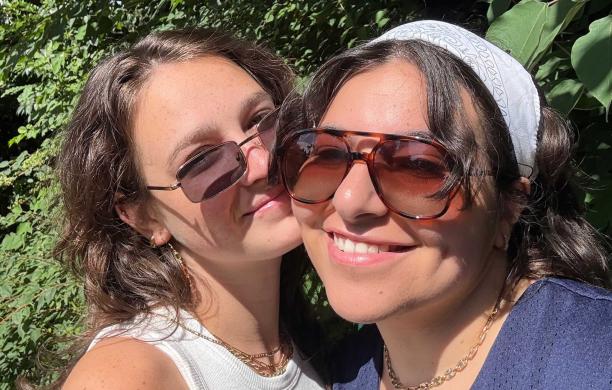Don’t call him a farmer.
Regardless of the impressive commitment he’s made to his family farm, Harry Hawkes Jr. ’84 ’20P insists that what he does is small potatoes compared to what “real” farmers do and for which he has great respect.
Born to Farm
Hawkes calls himself a “hobby” farmer. “If you are from New York City, this is a real farm, but if you are from Ohio, it’s just a hobby farm.”
Originally from Hudson, Ohio, Harry grew up next to a 12-acre farm with steer, pigs, horses, and a few sheep. He often admired how well the family members worked together, their strong values, and close connection, and he decided he wanted the same for his family one day.
Fortunately, he met a like-minded partner in his wife, Cyndi. “I met her in a bar 40 years ago, and she was the most beautiful woman in the place. After an awkward introduction, I told her I wanted a farm, and luckily, she did not run away.” Having grown up on 140 acres of land herself, Cyndi understood the appeal.
They started with a smaller property — eight acres in Hunting Valley, Ohio. They had no animals, eight ponds, a tiny barn, and "a lot of stone,” so when Hill House Farm became available 16 years ago, they snagged it.
Their new home offered a better foundation for the type of farm they envisioned. “We had 12 acres and bad fencing but a larger barn with eight sheep — five were rams, so it was a bar fight every day.”
But Harry and Cyndi were able to create what they wanted, subsequently purchasing two adjacent properties with more barns and another home for a total of 23 acres. Today they annually sell 12-15 lambs to 4-H members, 30 ricks of firewood, 10 tons of compost, 75 chickens and guinea fowl, and 10,000 eggs to 45 customers. They also board horses and goats, tend a large garden, and rent the additional house on their property, allowing the farm to make regular charitable donations to the food bank and Kids’ Book Bank.

Raising Good Stock
While he always aspired to live on a farm, Harry Jr. takes very little credit for turning Hill House Farm into the customer-centric, philanthropic business it is today. His children, Lauren and Harry III ’20, own that honor.
Twelve years ago, Lauren and Harry III were inspired to start a business, and their family farm was the logical place to begin. The young teens sold eggs, firewood, chickens, apple butter, and their Uncle Joe’s hot peppers to family friends. They showed lambs and auctioned chickens through 4-H at their local county fair. The Hawkes kids used some of their profits to purchase music and books for two school libraries. As their venture grew, they used their profits to fund an El Salvadoran woman’s college tuition through their church.
They developed business acumen as well, purchasing supplies, building a website, managing a checking account, and using QuickBooks to track their finances and performance. They also learned how to market their ideas through a newsletter.
“They started off with 25 customers, an occasional photo, and regular but very succinct notes that always included a fun fact about farming,” says Hawkes. “Today, we have 220 readers and a much longer newsletter, and I frequently quiz friends to make sure they are reading it! Writing the newsletter is now its own creative challenge that has its own benefits. And continuing to make regular charitable contributions gives the farm an additional, important purpose.”
“It was a great experience for them,” he recalls. “They learned a lot about hard work, solving problems, good customer service, and how to take care of animals, including young lambs requiring extra care and bottle feeding.” Hawkes (who worked for Booz Allen after earning an MBA from Dartmouth) remembers “on several occasions both my wife and I had to travel to New York City, and young Harry and Lauren took care of everything, including delivering lambs on their own.”
“These things don't just happen,” Hawkes says about raising kids with a strong work ethic, sound values, and a desire to help others. “In addition to wonderful grandparents and additional positive role models, it helped that we were working with them as parents on the farm. We did it as a family. I’d help them with splitting wood and birthing and raising the lambs, and my wife would feed the animals with them before dinner and oversee it all when I was traveling.”
 Up and Away
Up and Away
As inevitably happens, kids grow up, and Lauren and Harry III went to college. Lauren attended Tufts University and is working on her master’s degree in history with a focus on the Holocaust and genocide studies from the University of Amsterdam. Harry III earned his finance and supply chain degrees from Lehigh’s College of Business with an engineering minor, and he later graduated from Massachusetts Institute of Technology with a master’s in supply chain management. He works for Kearney Consulting in Boston.
They continue to help on the farm when they come home. “Harry helps reengineer the mechanical aspects of the farm, adding a strong back for heavy chores and taking photos for the newsletter, and Lauren is especially helpful with the animal husbandry part of it and contributing to the newsletter,” says Hawkes. “And of course, we all still love making firewood deliveries together in the old pickup truck.”
Taking the Lead
With the kids off at college, Cyndi and the elder Harry kept the business going. Retired from consulting with plenty of traveling under his belt, Hawkes wanted to stay in Ohio with his wife, so the two focused on the farm and their women's jewelry and clothing store, Juicy Lucy: A Clothing Store.
They invite many friends and families with children to the farm to experience the animals directly and learn about farming. “Having others’ kids visit is the best (next to birthing a lamb) because they get so excited about it. I love it when they call me Farmer Harry. Sometimes they are afraid of the animals, but most of the time they have a huge smile on their face, as do the parents. Everyone loves to touch and feed the animals by hand and if the alpacas spit on them, I tell them it is good luck. I often hear from parents that their children talked for days about meeting the animals and they want to return. It also helps that I give them an ice cream at the end of their visit.”

The Kids Are Alright
Having kids around the animals calls back to the time Hawkes spent with his own kids, finding tasks they could help with and that they were excited to do. “I always wanted a farm. I like physical labor, using the equipment, and taking care of the animals. The best part is when you can share that with your kids."
"When you are doing something together with a purpose, even if it is not always easy or fun, that's quality time.”


